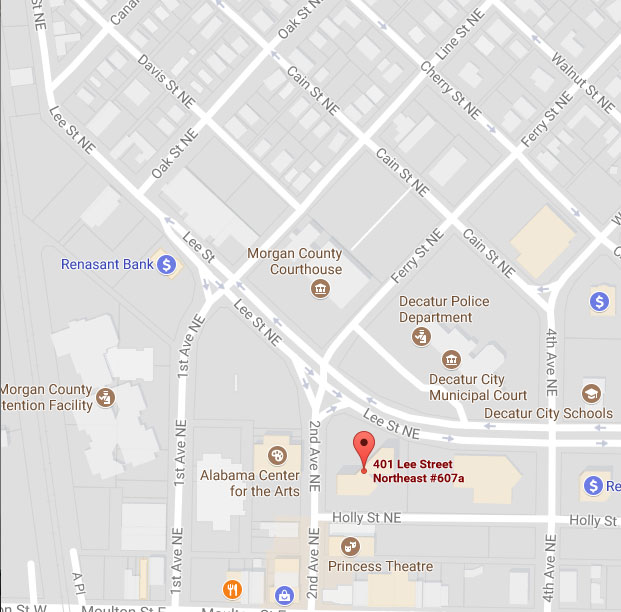DISCHARGING TAXES IN ALABAMA BANKRUPTCIES
Are you one of the many individuals who owe back taxes to the IRS? Income taxes can be discharged under certain conditions but must meet a 5 part test to qualify for discharge in a bankruptcy case. If they do not meet this 5 prong test then they are generally considered priority taxes that cannot be discharged in a Chapter 7 bankruptcy or must be paid in full in your Chapter 13 bankruptcy case.
In order to discharge taxes in Chapter 7 or Chapter 13 bankruptcy your taxes must meet a five-prong test. If one of these prongs is not met then your income taxes cannot be discharged and will be treated as a priority debt in your bankruptcy.
- Taxes must have been due 3 years ago-The due date for taxes is generally April 15 of each year unless you have filed an extension. In order for your income taxes to meet this requirement, you must count back whether the taxes were due more than 3 years ago. For example if you are filing for bankruptcy on March 10, 2015, then taxes that meet this standard would be 2010 taxes since they were due April 15th of 2011 (unless you filed an extension), but 2011 Taxes would not qualify since it would fall short of being due 3 years ago since they would have been due April 15th, 2012.
-
When are taxes deemed filed?
- When you mailed them
- If they are late then it is the date the IRS received them.
-
Substituted Tax Returns
- Not Signed by the Debtor-Not Filed
- The tax court has ruled that substituted tax returns that were filed by the IRS, but not signed by the debtor were not considered returns under the Bankruptcy Code Section 523(a)(1)(B). According to the tax courts, the unsigned substitute for tax return did not meet the definition of return and therefore could not be discharged in bankruptcy. The questions that courts have struggled with is whether you can discharge taxes that have been filed after a substitute for tax return has been filed.
- Signed by the Debtor-Filed
- The bankruptcy code includes a return prepared by the government and signed by the taxpayer.
- Not Signed by the Debtor-Not Filed
-
Taxes must have been assessed more than 240 days ago-The taxes must have been assessed more than 240 days before the filing of your bankruptcy case. Offers in comprise or audits of your taxes affect when your taxes were assessed. Important issues to be aware of:
- The date that your taxes are assessed is not the date of filing. Generally this is the date the IRS officer signs a summary record of assessment. It is a good idea to obtain a record of assessment to determine when your taxes where assessed or Certificate of Assessment.
- Assessment period is extended during the time an offer in compromise is pending plus 30 days.
- Amended tax returns where a deficiency is assessment will alter the date that your taxes where assessed.
- Time is tolled during the time a prior bankruptcy was pending.
-
There was no willful intent to evade taxes or fraud involved –The taxes that you owe must have not resulted from an intent to evade taxes such as filing inaccurate tax returns in which you count additional dependents that you know you cannot count as dependents or underreporting your income.
- Failing to pay taxes while engaging in "unnecessary and unreasonable expenditures" evidences an intent to evade taxes. Engaging in lavish purchases or transferring of assets while failing to pay your tax obligations indicates an intent to evade taxes.
- Failing to pay taxes has not been found alone to indicate intent to evade taxes.
-
Unsecured Taxes-If there is a valid tax lien that has been filed by the IRS, then the tax lien will remain after bankruptcy. Although your personal tax liability will be discharged in bankruptcy, the tax lien will remain on your property. The tax lien attaches to exempt property in the bankruptcy. You can reduce the value of the tax lien as part of your bankruptcy since the value of the tax lien is reduced to whatever the value of your property is at the time of filing.
- Chapter 7 Bankruptcy – If your total assets at the time of filing are $10,000 and a tax lien was recorded for $50,000, then the bankruptcy reduces the tax lien to $10,000 (the value of your assets at the time of filing).
- Chapter 13 Bankruptcy- If your total assets are worth $10,000 at the time of filing and there is a recorded tax lien for $60,000, then $10,000 would be treated as secured tax debt as part of the bankruptcy and the remaining portion should be treated as unsecured tax debt.
Taxes must have been filed on time or at least 2 years ago- You must have filed the taxes that you are trying to discharge more than 2 years ago from the date of your bankruptcy filing. If you have not filed your tax returns then the taxes that are due on the return cannot be discharged in bankruptcy. If your taxes were assessed on the basis of a substituted tax return that the IRS uses to obtain an educated guess on your tax liability then your taxes may not be dischargeable.
Interest on Taxes Are Dischargeable
The general rule for interest on taxes is that they are dischargeable if the initial tax meets the requirements to be discharged. If your income taxes meet the requirements to be discharged then any interest that has accumulated will also be subject to discharge.
Penalties on Taxes May be Dischargeable
Penalties may be dischargeable even if your tax does not meet the standard to be discharged in bankruptcy. The general rule is that if the event that gave rise to the tax penalty occurred more than 3 years before the filing of your bankruptcy case then the penalty can be discharged in bankruptcy. Penalties that were imposed as a result from actual pecuniary loss incurred.
Non Dischargeable Taxes
- Employee Taxes-Taxes that are collected by an employer to pay the employee portion of taxes are not dischargeable.
- Sales Taxes-Generally in most taxes these are considered trust fund taxes that are not dischargeable in bankruptcy. In California, they are dischargeable because they don’t fall into this category and therefore you can discharge them as part of your bankruptcy.
Free Consultations
Discharging taxes in bankruptcy can be tricky and requires careful examination of your income taxes and the circumstances surrounding their filing and assessment. If you owe income taxes we will review your facts to determine if we can discharge your taxes in a Chapter 7 bankruptcy or have you pay less than 100% in a Chapter 13 bankruptcy. The law firm of Ferguson & Ferguson is here to help. Call 256-534-3435..


